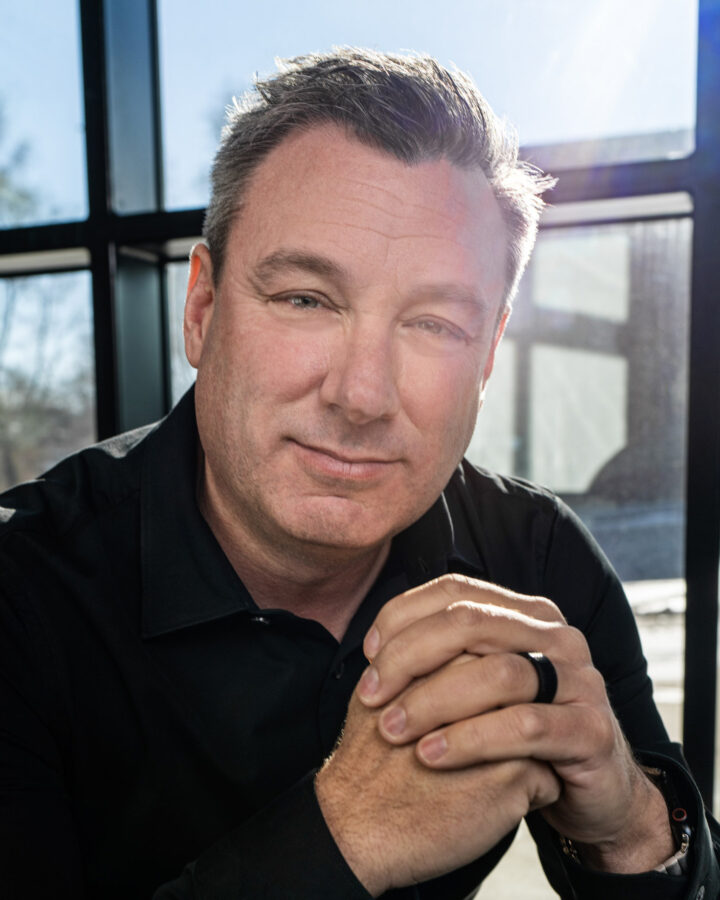
Interview with Ryszard Bublik, CEO of Social360, a media monitoring company in the UK.
Hi Ryszard, what is your background, and what is included in your current role at Social360?
I started my career in investment banking before moving into the communications industry, learning my trade at global critical issues management firm Brunswick Group. From there, I co-founded the boutique tech PR agency Parys Communications with business partner Patrick Herridge. While at Parys, we recognised a lack of quality social media listening tools for corporate communications teams, so we set out to build our own, and Social360 was born. That was more than a decade ago.
As I look back on it, the most rewarding and exciting part was building our technology platform from the ground up and applying the product to help industry professionals strengthen their craft – many of whom I knew personally from my days as a PR practitioner.
Now we have a successful business with a highly-experienced team based around the world, from Rio de Janeiro to New York to London to Melbourne – even Oakhampton in Devon, the home of our main tech hub. My role is to ensure the business moves forward, understanding our client's issues and how we can help solve them. I have a senior management team around me who makes sure the company is running efficiently. The issues and requirements of our clients are constantly changing; our mission is to stay ahead of them and be a partner in their success.
What differentiates Social360 from other media monitoring companies?
We approach client relationships as a partnership and work from the belief that one size does not fit all. The needs and issues of our clients can be different each time. We work with our clients to develop and understand what they’re facing and deliver a solution that works for them. We do the heavy lifting and deliver relevant, actionable results.
We have been looking at social data for a very long time, and so our machine learning algorithms are based on more than a decade’s worth of human analysed data. That means that our models are based on one of the largest historical data sets available, which is the secret (not-so-secret) sauce from which our clients benefit.
The social media universe is vast and constantly growing; finding what you need to know from a reputational perspective is a mighty challenge. Brand trend data is the easy part, but finding information that would impact a company’s reputation is a different issue. That’s where we step in – we are the first and probably only social media listening business that focuses on reputation and risk management. With our powerful machine learning algorithms combined with our human analysts, we can deliver output that our customers can put to work immediately. We do the searching and data synthesis using human analysis so our clients can focus on the outcomes needed, not on getting the right data.
What are your greatest challenges ahead at Social 360, when it comes to serving your customers and developing your service offering?
Access to high-quality data is always supercritical. Our clients don’t ever want to be caught on the back foot, so we strive to be an early warning system, spotting the reputational issues before they emerge. We work very hard to ensure that the raw uncategorised data we collect is as complete as possible but, more importantly, as relevant as possible. We believe our search and categorisation technology sets us apart.
Have you recently, or do you plan to, release any new technology-based solutions that will add to or improve the services you offer your clients?
Social360 was built on our own technology platforms – back end to front end. That was primarily because off-the-shelf products were fixed in format and never had the depth of search we needed. As a result, we have always been able to stay ahead of the market and adapt to our customers’ needs by developing and implementing technology improvements as needed. We are now moving to deliver bespoke Enterprise solutions that in some cases include data beyond social data, such as regulatory data. Our search and categorisation technology can be applied to many different types of data sets, which means we can offer a bespoke solution to corporates. Rather than a corporate buying multiple other platforms to look at different data sets and then only using 10% of the functionality of each platform, we can build a bespoke platform that has the right functionality the business needs.
The other big technology rollout we are planning is using our machine learning algorithms to automate risk identification on social media. We have seen tremendous growth for our social due diligence product, where we look at the social media footprint of organisations and individuals. We believe our algorithms will allow some automation of that process and, as such, become a true risk identification engine.
All customers come with a different level of knowledge. What are the most common misconceptions your current and potential clients have regarding what media monitoring can give them?
With the proliferation of monitoring businesses banging the AI drum, some clients are led to believe that AI-led companies can somehow predict the future! Perhaps one day, but the technology isn’t there yet. AI engines definitely help dramatically filter down data; however, the last mile still requires human interpretation of that data. We focus on delivering the output that matters to our clients, not necessarily the latest technology buzzword.
Talking to one of our clients recently, they believe that no system, dashboard, or AI is 100% right all of the time. While that may be true, we think that we can significantly reduce the error rate with augmented human input and thus, in turn, train the machines to be more accurate in the future. This is a process, and we are at the beginning of it, not the end.
When it comes to the actual data behind the media monitoring you do, what kind of data or media not currently used can be interesting in the future?
The platforms we are always asked about are peer-to-peer chat applications like Whatsapp or Snapchat. By its very nature, that data is encrypted and only available to those who are part of the conversation. Those data sources would be interesting for our clients; however, they are private conversations, so I don’t expect access to that data any time soon. It would be like placing a listening device at a dinner party in someone’s home - not a path any company should be going down.
Privacy around the use of social data is an emerging challenge. How do you think that will affect the media intelligence industry?
It is an issue, however, organisations and pressure groups will always want their voices heard, so there will always be an element of social data in the public domain. We as an industry need to ensure we know and understand the boundaries we operate in and, as such, deliver social data that is being shared publicly. The anonymity of social data is a debate that’s not going away. That debate is very mainstream now as questions are continually raised following online abuse on Twitter and other platforms – should that privacy and anonymity now be dropped? It’s a question that raises other questions around controls, freedom of speech and others.
How do you think the media intelligence industry will change in the next 5-10 years, and what are the greatest challenges ahead?
I think the convergence of traditional media and social media will only accelerate, and as an industry, we need to be working harder to integrate the two better. For me, it still feels like the two are treated in silos, and that needs to change. It will be challenging,
By Peter Appleby


